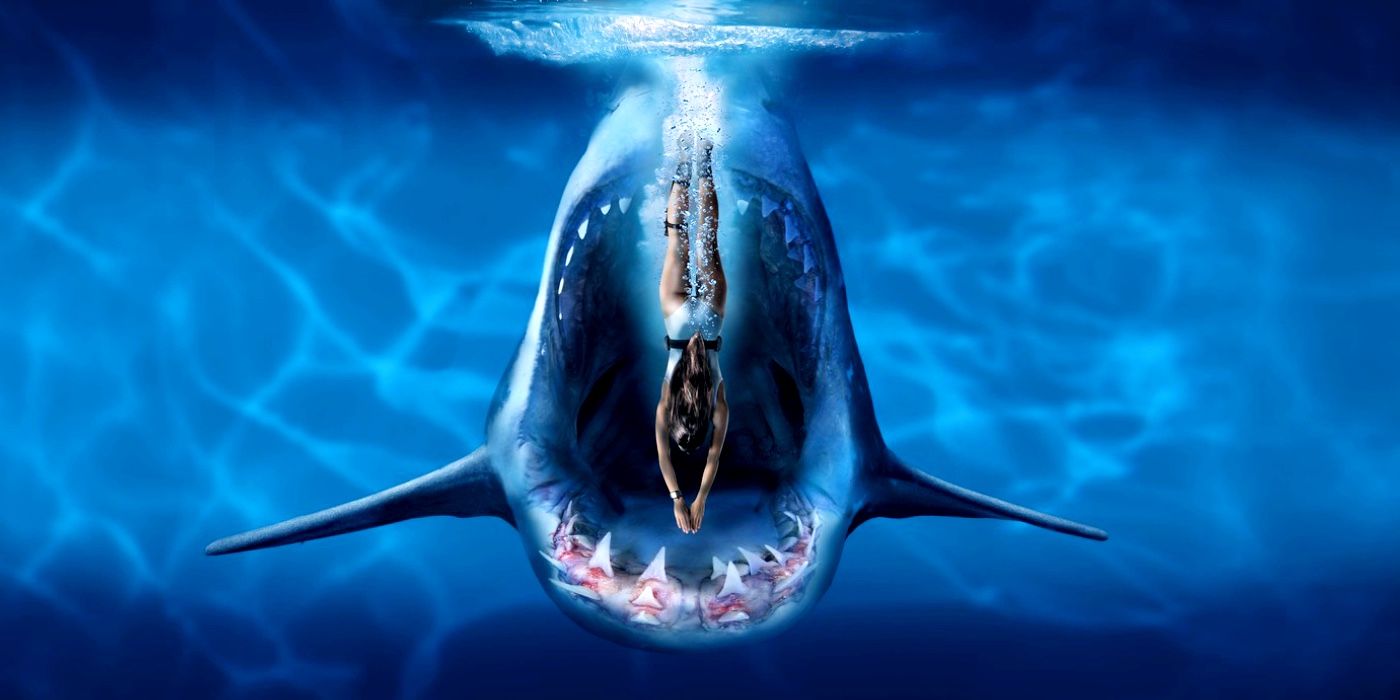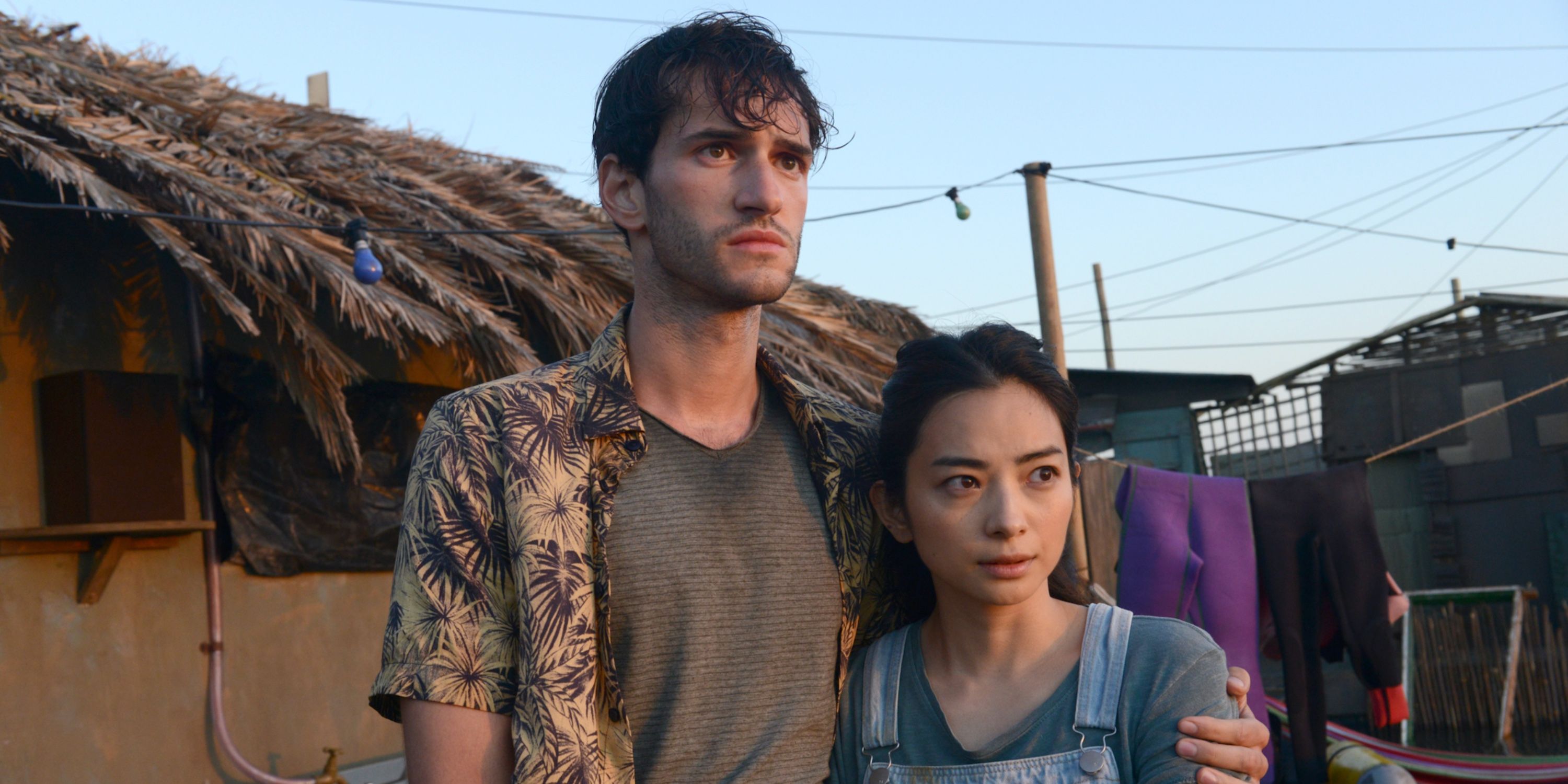Deep Blue Sea 3 could make uppity cinephiles snicker with its mere existence, but just one watch of John Pogue's 2020 franchise installment confirms that it saved the franchise as a whole. Yes, there are still brainiac sharks and oh-so-clever supporting characters, but the overall filmmaking approach favors naturalism over genre tropes. For a franchise to truly endure, there needs to be a filmmaker who takes risks and re-directs the ship, so to speak. Deep Blue Sea 3 succeeds through Pogue's directorial guidance, along with a smart script by Dirk Blackman and performers who don't fall into the trappings of genre expectations.
In 1999, Renny Harlin's Deep Blue Sea became a box office hit through its mixture of Sharksploitation suspense, strong action sequences, and a main cast that didn't take their roles too seriously. The premise revolves around researchers who attempt to understand genetically engineered sharks, and subsequently witness how larger brain masses affect the subjects' day-to-day behavior. A couple scientists are eaten up rather quickly, which conveniently sets in motion the main shark action. As Preacher Dudley, LL Cool J has some memorable scenes despite some questionable acting, and Samuel L. Jackson provides genuine star power as Russell Franklin. In addition, Saffron Burrows grounds the main cast as the well-meaning Dr. Susan McCallister. Produced for $60 million, Deep Blue Sea earned approximately $165 million in theaters and arguably became the best damn shark flick since Steven Spielberg's Jaws.
Any conversation about Deep Blue Sea 3's brilliance must acknowledge the inarguable fact that Deep Blue Sea 2 nearly destroyed the franchise's reputation upon its 2018 release. After a nearly two-decade gap between films, Darin Scott's sequel did little to inspire good will amongst fans of the original movie, most notably because of a maddening script and poor performances. To be fair, Deep Blue Sea 2 shouldn't be entirely dismissed, but the filmmaking is clearly weak, and the forced comedy doesn't land well. There's a somewhat decent performance from Michael Beach as the baddie Carl Durant, but the rest of the cast favors camp over authenticity, or at least that's how it seems based on their stiff line readings. Then, in 2020, a third franchise installment suddenly appeared, and has seemingly become one of the most underrated films of the COVID-19 lockdown era, primarily due the collective performances that tap into the feeling of feeling scared, vulnerable, and yet hopeful.
In general, audiences seem to enjoy that Deep Blue Sea 3 doesn't rely on lazy tropes. For example, the sequel immediately loses momentum because there's little passion to sell to the audience. The protagonists merely recite lines from the script with little to no emotion whatsoever, and supporting players try to imitate shark-movie characters that they've seen from the past, or at least that's how it seems. There's a proper villain and a comedic relief character, which can look good on paper, but the questionable scripted dialogue doesn't translate to strong performances. With Deep Blue Sea 3, however, Tania Raymonde (Texas Chainsaw 3D) leads the way as the fiercely-independent, yet relatable Dr. Emma Collins.
As a character, Emma is genuinely concerned about her work; she talks the talk AND walks the walk, evidenced by her overall behavior with dealing with nonsense from colleagues. With a strong lead performance in place, Deep Blue Sea 3 become more impactful with effective supporting performances, along with a fresh script that at once links all three movies while providing Alex Bhat with strong material as the comedic relief character, Spinnaker, who is also humanized through his moving interactions with love interest Miya (Reina Aoi).
Deep Blue Sea 3 shouldn't be applauded for not being horrible, but should receive plenty of recognition as a quality sharksploitation movie. Pogue, the director, likely won't have any major award nominations coming his way, but he will have the respect of genre fans who recognize his commitment to shark movie excellence, and also the fact that he didn't allow any embarrassing filmmaking moments to slip through. There are some gnarly shark sequences, and there's a clear sense of cast camaraderie. Because everyone seems invested in the process, Deep Blue Sea 3 transcends above so many ill-fated genre installments that simply don't understand the target demographic, or don't fully grasp the main objective. Deep Blue Sea 3 hooks the audience with a strong cast, and reels them in with efficient storytelling and well-polished direction. We need more Deep Blue Sea, and Pogue may need a bigger budget.


